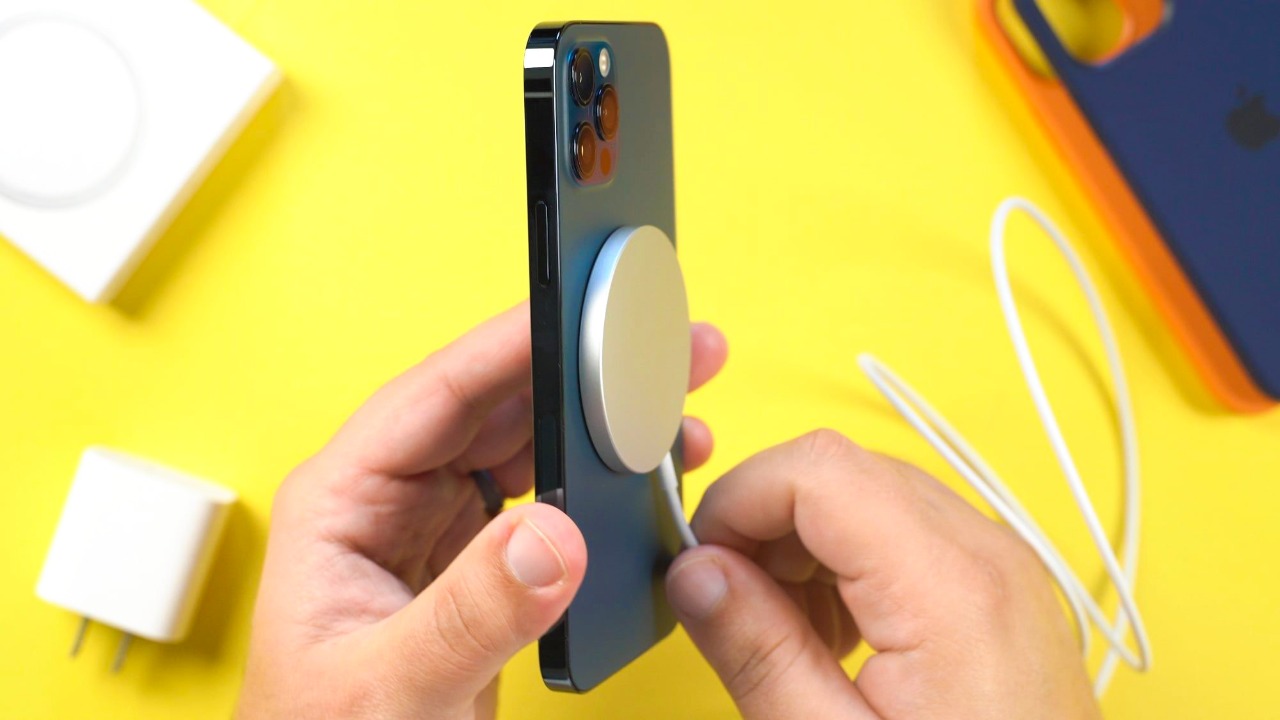Apple says to keep iPhone 12 away from pacemakers…just in case
Apple errs on the side of caution in new guidance around magnets in its devices


Apple has introduced new literature around using its iPhone 12 handsets and MagSafe accessories, amending it to contain new guidance around using the device near medical implants.
Although it stops short of a stark warning, it indicates that consumers should be conscious of using the devices around lifesaving defibrillators, pacemakers, and other medical devices. Apple users should stay at least six inches clear of such devices when being used for day-to-day use, increasing to at least a foot away if the iPhone is wirelessly charging.
- Breaking: Twitter's community driven fact-checking pilot is yet another misstep for the platform
- Xiaomi's overly ambitious rollable phone patent feels like the Samsung Galaxy Fold all over again
- Apple Watch 7's trailblazing feature is breakthrough for diabetics
Earlier in January, the Heart Rhythm Journal laid bare worrying information around the magnets in Apple's devices. It shows that the technology can – in some instances – deactivate pacemakers. The journal demonstrated a situation in which an iPhone 12 caused a pacemaker to enter a suspended state.
Warnings like this have been in place with mobile devices for a while, as many smartphones include magnets, which can reduce the threshold for electronic interference. User health is one of Apple's core brand offerings: devices like the Apple Watch Series 6 even have a sensor to detect how oxygenated your blood is at any given time, so the quickness of its response, to reports that its devices could harm users in certain scenarios is no surprise.
In reply, the tech giant has issued a new support page that warns users about the magnets inside the spectrum of its new devices: the iPhone 12 mini, iPhone 12, iPhone 12 Pro, and iPhone 12 Pro Max. It also contains guidance for the MagSafe Charger, and MagSafe Duo Charger accessories.
Apple notes that “iPhones contain magnets as well as components and radios that emit electromagnetic fields. All MagSafe accessories (each sold separately) also contain magnets—and MagSafe Charger and MagSafe Duo Charger contain radios. These magnets and electromagnetic fields might interfere with medical devices.”
If you've heard enough and are already scratching your head for what other devices you should now choose, head over to T3's best smartphone guide – do keep in mind that these devices may also contain magnets, so you'll need to really delve into the technical minutiae if you're hanging your decision on this important point alone.
Get all the latest news, reviews, deals and buying guides on gorgeous tech, home and active products from the T3 experts
Despite the higher number of magnets in the iPhone 12 models, Apple has said: “They’re not expected to pose a greater risk of magnetic interference to medical devices than prior iPhone models.” However, it tells you to “consult your physician” for more specific information relating to your medical device.
It's unlikely going to be an issue for the majority of users; still, it's worth keeping in mind in case you have family members who rely on these important instruments. If you personally have one of these medical devices, then be extra vigilant on how and where you use your iPhone, and consult your doctor as per Apple's instructions.
Source: engadget

Luke is a former news writer at T3 who covered all things tech at T3. Disc golf enthusiast, keen jogger, and fond of all things outdoors (when not indoors messing around with gadgets), Luke wrote about a wide-array of subjects for T3.com, including Android Auto, WhatsApp, Sky, Virgin Media, Amazon Kindle, Windows 11, Chromebooks, iPhones and much more, too.